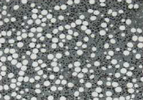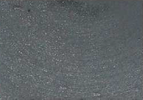CEREZ abrasion resistant lining, a simple solution for wear problems
Easy to apply and highly resistant to wear, Cerez range are indispensable tools for maintenance departments in industries that handle liquids with abrasive particles or bulk materials.
CEREZ adheres to most of properly prepared and degreased steel, stainless steel, concrete, polyurethane, rubber, and ceramic substrates, as well as to an existing CEREZ coating. CEREZ is available as a kit with a resin and hardener component.
AREAS OF APPLICATION
The CEREZ range is ideal to protect or repair :
- Pumps
- Piping systems
- Hoppers
- Chutes
- Cyclones
- Extractors
- Screens
- Tanks
- Blades and fan bodies
- Heat exchangers
MIXING
- Pasty products:
-
- Work on a clean, smooth surface (e.g. enameled stoneware).
- Apply the indicated amount of resin and hardener.
- Mix with a spatula for 3 to 5 minutes.
Do not use a tool soiled with one component in the pot of the other component (risk of setting).
- Liquid products:
-
- Pour all of the hardener into the resin container.
- Mix for 3 to 5 minutes, if possible with a mechanical mixer. Work at low speed to avoid air bubbles in the mixture.
Never mix more product than can be applied before setting begins.
IMPLEMENTATION TECHNIQUE
The key points for a good application :
- Surface Preparation
- Temperature
- Homogeneity of the resin/hardener mixture
SURFACE PREPARATION
- Surface: clean, degreased and if possible rough.
- Method: grinding with a coarse grinding disk or sandblast the substrate followed by rinsing with clean, non-greasy solvent.
TEMPERATURE
- The temperature of the CEREZ resin and the component to be coated must be between 15 and 25°C.
- Temperatures above 25°C (77°F) reduce the setting time and may make application difficult.
- Temperatures below 15°C can slow down or even stop the drying.
- Warming up: if necessary, warm up each component and the part to be coated by storing them in a room at the required temperature.
- Caution: Mixing too much product at once can greatly accelerate the drying process as the resin/hardener mixture releases heat.
APPLICATION
- Doughy products :
- Use metal tools, trowels or spatulas for flat areas and any other tool with a suitable shape for complex shapes (the shoehorn is the ideal tool for pump bodies).
- Make a first pass: the mixture must “wet” the support, especially if it has been sanded.
- Apply to the desired thickness (respect the minimum thicknesses recommended).
- High thicknesses and sloping walls: make several passes if necessary; wait for each coat to set completely before applying the next one.
- Pass regularly the metal tool in the flame of a small gas lamp to avoid the mixture to stick to the tool.
- Form making: cover with plasticised adhesive tape to facilitate removal from the mould.
- Clean tools regularly with acetone before setting.
- Liquid products:
- Apply in criss-cross layers, using a brush or a plastic spatula for thicker layers on horizontal surfaces.
- Always wait for one coat to set before applying the next.
- Applying different colored coats can be used as a wear indicator for preventive maintenance of equipment.
CARACTÉRISTIQUES TECHNIQUES
The CEREZ range, ready-to-use wear resistant resins offer four polymer grades that differ in grain size and application method.
| CEREZ 600XS |
CEREZ 550XS |
CEREZ 500XS |
CEREZ 400XS |
|
|---|---|---|---|---|
| Kit net weight (kg) | 12 | 6.30 | 1.15 | 1.15 |
| Maximum grain size (mm) | 2 | 1 | 0.1 | 0.1 |
| Type of product | Doughy | Doughy | Doughy | Liquid |
| Application | Trowel | Trowel | Trowel | Brush |
| Resin/hardener mix | 2/1 | 3/1 | 1/1 | 1/1 |
| Resin color | Grey | White | Dark grey | Blue/Red |
| Color hardener | Black | Red | Light grey | Light grey |
| Mixture lifetime at 25°C (min) | 30 | 25 | 20 | 20 |
| Setting time at 25°C start/end in hours | 8/24 | 8/15 | 4/8 | 4/24 |
| Consumption per mm of thickness in kg/m² | 2.25 | 1.90 | 2.10 | 2.10 |
| Minimum recommended thickness (mm) | 5 | 5 | 3 | 1 |
| Maximum operating temperature (°C ) | 110 | 120 | 120 | 120 |




